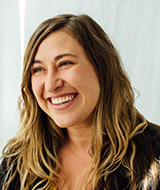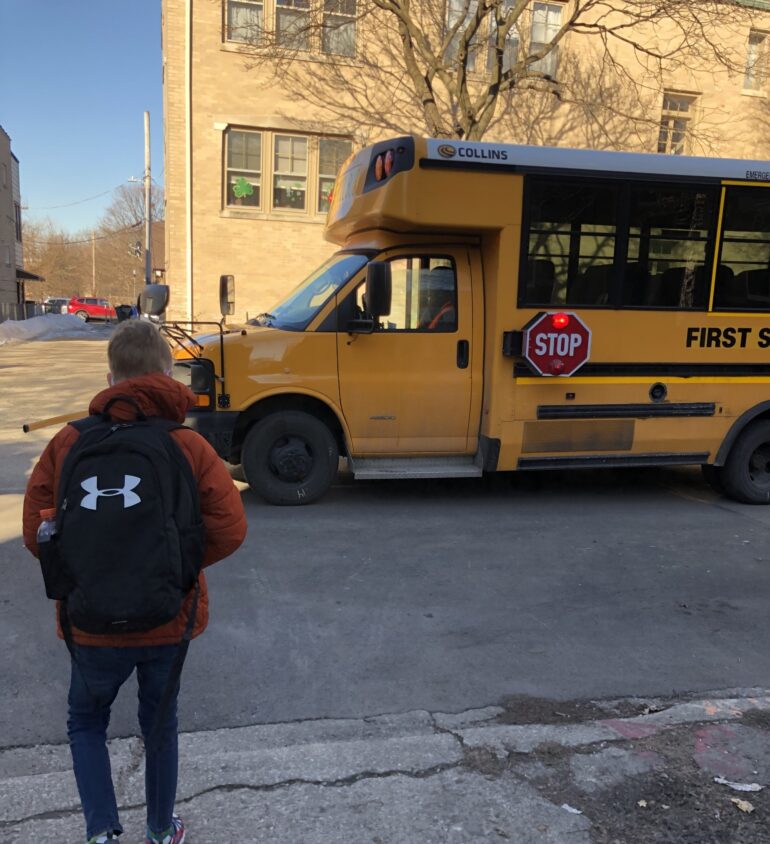As part of our “You Said It” Op-Ed series, we invite contributors to submit their opinion pieces. The views reflected in these pieces may not be our own. Have a submission? Contact us here.
It was a Saturday morning, mid-pandemic, and the doorbell rang. We weren’t expecting a delivery and drop in visitors were a thing of the past, thanks to Covid. My oldest son Asher was watching TV and playing on his computer, which he had become quite skilled at, thanks to remote learning. Asher is 11-years old and cognitively impaired. He has a rare genetic syndrome called Prader-Willi Syndrome. A main feature of this syndrome is that the hypothalamus, the part of the brain that registers hunger, doesn’t function properly, which means he’s in a constant state of hunger. Add some solid O.C.D. to the mix, and folks with Prader-Willi Syndrome will go to lengths to seek food. Asher is in special education in Chicago Public Schools and the change in structure due to the pandemic has been incredibly difficult for him.
The doorbell rang again, which made me realize it wasn’t just an Amazon delivery. My husband threw on some clothes and went to open the door. A delivery man handed him a giant bag of McDonald’s. My husband looked at the receipt, which had the name “Asher” printed on it, as well as the hefty price tag of $70. That’s $70 worth of hotcakes, bacon egg & cheese mcgriddles, hash browns, and muffins. Asher was thoughtful and threw in a hot tea and coffee for us, and even thought to add a packet of honey. We quickly figured out that Asher had somehow logged into Doordash and ordered $70 worth of McDonald’s to be delivered to our house.
If you’re laughing, it’s ok. I laughed too. But after the initial shock wore off, I started to feel a deep sadness of this new level of hyper vigilance required of me. Truthfully, I have always been hyper vigilant. We lock our refrigerator to keep Asher from sneaking food. But now, the device my son relied on to be engaged in school gave him a new level of freedom we weren’t ready for him to have. And now the computer is another thing I need to monitor. No doubt all parents are feeling the immense strain of schooling at home, but parents of kids with disabilities are so in over our heads.
According to CPS, nearly 15% of all students have an individualized education plan (IEP). That’s roughly 50,000 of Chicago’s most vulnerable kids who, for the past 12 months, have had to adapt to an entire new way of life. And I guarantee you each of those kid’s parents are acutely aware of their child’s regression. In true special needs parents fashion, we’ll continue to cheer on and advocate for our child, seeing the good and holding hope for their potential. But this has certainly come at a cost. As parents, our mental health is struggling. Our marriages are struggling. We want to tap out, but there’s no one to pass the baton on to. Our kids require constant supervision, both physically and behaviorally, but we simply cannot do it alone.
Asher has been back in the classroom for 3 weeks. I acknowledge my privilege, in that both my husband and I are vaccinated so we feel less risk involved in this decision. Recently while I was checking out at Target, the cashier mentioned her son has ADHD and she desperately wants to send him back to school, but her mother is high-risk and she simply cannot take the chance of bringing home COVID. It’s inequity on top of inequity.
Every morning, Asher asks me 100 questions about his day, trying to understand his new normal. When I’m feeling burnt out, I try to remind myself that we’re all adjusting to a new normal, Asher just doesn’t hide it quite as well as most of us. He’s being so brave, to willingly (excitedly!) go back to school wearing a mask and surrounded by people in PPE. I believe in his resiliency, which at the end of the day reflects my resiliency. Our resiliency. Maybe there is a light at the end of this tunnel, and maybe, just maybe, I’m starting to see it. My disabled son is once again teaching me the meaning of hope. Perhaps you’re starting to feel it too. And if for some reason you’re having a particularly hard day, may I suggest ordering dinner from Doordash. I hear McDonald’s delivers.
More from Better:
- 12 Movies and TV Shows To Stream for Women’s History Month
- Champions on the Field and Off: 10 Most Inspiring Athletes
- Chicago Assemble! Marvel: Universe of Super Heroes Comes to the Museum of Science and Industry

Amanda Griffith-Atkins is a licensed marriage and family therapist whose clinical background, combined with her own experience as the mother of a disabled child, has given her a unique and refreshing perspective on special needs parenting. She is the founder of Amanda Atkins Counseling Group in Lincoln Square, Chicago.

